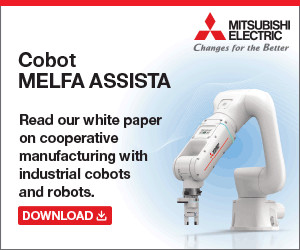Defining Medical Anthropology in Healthcare Systems
Medical anthropology studies how cultural, social, and behavioral factors influence health and illness. By examining these elements, we gain insight into patients’ beliefs, practices, and experiences. This field provides an invaluable perspective for understanding how diverse populations interact with healthcare systems.
Healthcare systems research within medical anthropology focuses on the structural and systemic factors that affect healthcare delivery. Researchers analyze how policies, institutions, and socio-economic conditions shape access and quality of care. By integrating medical anthropology, we explore patient-provider relationships, trust, and communication patterns within healthcare environments.
The role of medical anthropology expands when combined with advanced technologies like robotics. We assess how cultural factors influence the acceptance and use of robotic systems in patient care. This approach identifies potential barriers and facilitators, guiding the development of culturally sensitive robotic solutions.
Medical anthropology offers deep insights into the complexities of healthcare systems. By evaluating cultural, social, and systemic factors, we enhance the implementation and effectiveness of robotic technologies in diverse healthcare settings.
Current Trends in Robotics and Healthcare
Robotic advancements are revolutionizing healthcare systems. These technologies improve patient care, streamline operations, and provide new opportunities for medical research.
Integration of Robotics in Medical Practices
Robotics have been integrated into various medical practices, offering precision in surgery and therapy. For example, robotic-assisted surgeries enable minimally invasive procedures, reducing recovery times and infection risks. In rehabilitation, robotic exoskeletons help patients regain mobility. Additionally, robotic systems automate repetitive tasks, allowing healthcare professionals to focus on patient-centered care.
Recent Innovations in Healthcare Robotics
Recent innovations in healthcare robotics have introduced autonomous systems and AI-enhanced robots. Examples include AI-driven diagnostic tools and autonomous robots for hospital logistics. These technologies improve diagnostic accuracy and operational efficiency. Innovations like robotic telemedicine units also extend healthcare access to remote areas. Such advancements offer a glimpse into the future of robotics in healthcare, where systems are more integrated and personalized.
The Role of Medical Anthropology in Research
Medical anthropology provides critical insights into how cultural contexts and social structures influence healthcare delivery. By incorporating these perspectives, we can develop more effective and culturally competent healthcare systems.
Understanding Cultural Contexts
Medical anthropology helps us understand cultural contexts by examining how beliefs, traditions, and social norms affect health behaviors. For example, understanding how certain communities perceive illness can inform the design and implementation of robotic healthcare technologies. This cultural competence ensures that robotic interventions are accepted and effective across diverse populations.
Analyzing Patient-Robot Interactions
Analyzing patient-robot interactions involves studying how patients relate to and engage with robotic systems. Medical anthropology allows us to observe these interactions, identifying factors that influence acceptance and effectiveness. For instance, if patients feel uneasy around robots, anthropological insights can help modify designs or interaction protocols to improve comfort and trust. This approach ensures that robotic innovations are user-friendly and widely accepted.
Case Studies and Practical Applications
Successful Implementations
Several healthcare systems have successfully integrated robotics with insights from medical anthropology. In Japan’s elderly care facilities, social robots like Pepper have significantly improved patient engagement by considering cultural nuances in their interactions. In the United States, robotic surgical systems have incorporated patient feedback to enhance precision and reduce recovery times. These examples demonstrate how understanding cultural contexts leads to more effective and accepted technological advancements in healthcare.
Challenges and Lessons Learned
Integrating robotics in healthcare presents challenges. In some cultures, patients may resist robotic intervention due to distrust or lack of familiarity. For instance, despite technical success in Europe, robotic caregivers faced acceptance issues among older adults wary of non-human assistance. Lessons learned emphasize the importance of continuous cultural competency training and patient education to ensure successful adoption and integration of robotics.
Ethical Considerations
Integrating medical anthropology and robotics in healthcare demands careful ethical evaluation. Here, we explore key considerations essential for balancing technological innovation and ethical standards.
Privacy and Data Security
Robotics and AI in healthcare require robust privacy and data security measures. Protecting patient data is paramount, especially when integrating diverse cultural contexts into robotic systems. Inadequate data protection can lead to misuse and breaches, undermining patient trust and compliance. Thus, implementing stringent data encryption protocols, regular audits, and ethical guidelines for data handling ensures patient information remains secure and confidential.
Impact on Patient Care
The introduction of robotics in healthcare significantly influences patient care quality. Optimizing patient interactions and addressing cultural differences enhance treatment outcomes. For instance, culturally aware AI systems can provide tailored patient support, improving diagnosis accuracy and therapeutic efficacy. However, it’s crucial to evaluate the influence of robotic systems on patient-provider relationships to prevent depersonalization of care. Balancing technological efficiency with empathy ensures ethical patient care.
Future Directions and Implications
The fusion of medical anthropology and robotics in healthcare is poised for significant growth. Exploring future advancements and evolving roles can offer insights into this transformative field.
Advancements in Robotics Technology
Innovations in robotics technology are set to revolutionize healthcare. Advanced AI capabilities enable robots to perform complex diagnostic tasks with high accuracy. Autonomous robotic systems are extending healthcare services to remote areas, enhancing access and care quality. By integrating sensors and real-time data analysis, robots can monitor patients continuously, improving health outcomes. The development of soft robotics offers safer interactions in patient care, minimizing risks associated with traditional robotic apparatus.
Evolving Roles of Medical Anthropologists
The role of medical anthropologists is evolving dramatically within healthcare systems research. They analyze cultural dynamics that impact the adoption of robotics, ensuring technologies meet diverse patient needs. By collaborating with engineers and healthcare providers, they contribute to the design of culturally sensitive robotic interfaces. Medical anthropologists also lead training programs for healthcare professionals, promoting cultural competence and enhancing patient-robot interactions. Their involvement is critical in assessing ethical considerations, balancing technological advancements with societal values.
Conclusion
As we look to the future, the fusion of medical anthropology and robotics in healthcare holds immense promise. By addressing cultural barriers and enhancing the effectiveness of robotic technologies, we can create a more inclusive and efficient healthcare system. Integrating insights from medical anthropology ensures that technological advancements are culturally sensitive and ethically sound.
The collaboration between these fields is not just about innovation; it’s about transforming patient care and making healthcare accessible to all. As robotics technology continues to evolve, the role of medical anthropologists will be crucial in guiding this transformation. Together, we can harness the power of both disciplines to revolutionize healthcare for the better.





